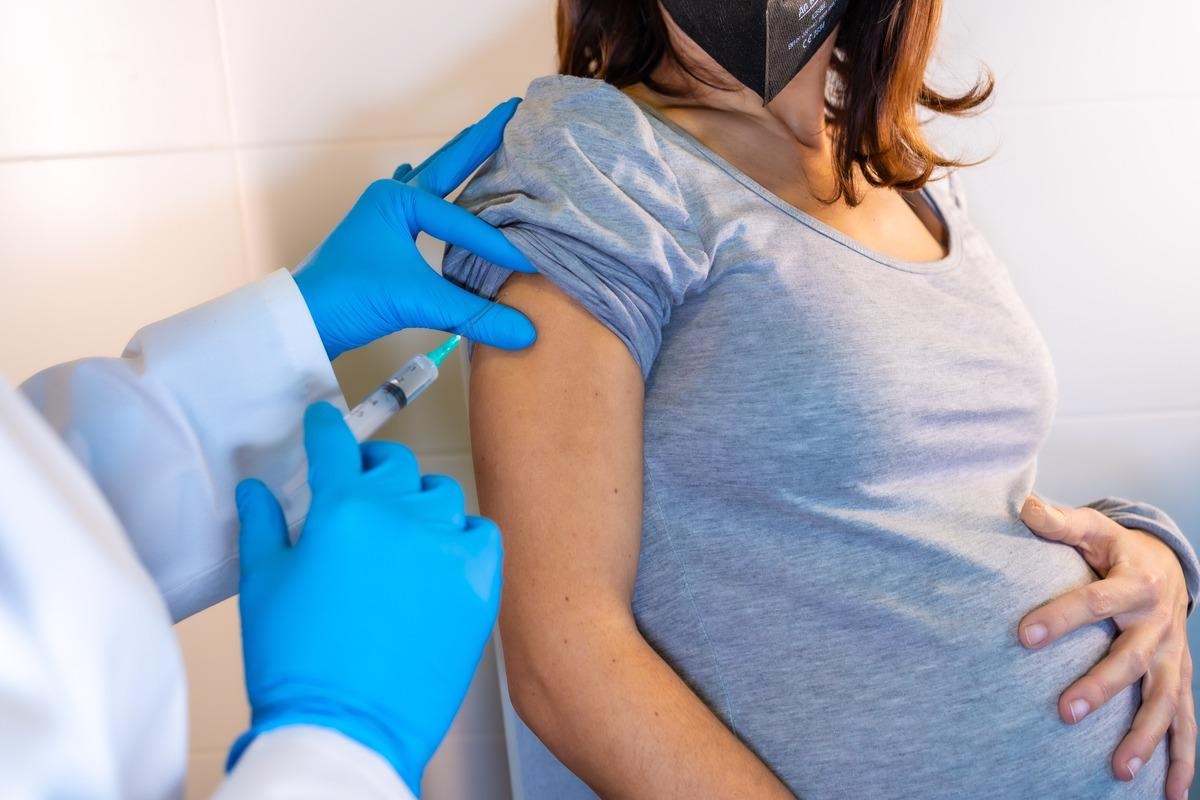New research finds coronavirus disease 2019 (COVID-19) vaccination during pregnancy results in significantly greater antibody persistence in the infants compared to natural infection of the mothers during pregnancy. This study quantified anti-Spike immunoglobins (Ig) G antibodies in the maternal and umbilical cord samples and infants at different timepoints after COVID-19 vaccination and natural infection (in pregnant mothers).
 Study: Durability of anti-Spike antibodies in the infant after maternal COVID-19 vaccination. Image Credit: Unai Huizi Photography/Shutterstock
Study: Durability of anti-Spike antibodies in the infant after maternal COVID-19 vaccination. Image Credit: Unai Huizi Photography/Shutterstock

 This news article was a review of a preliminary scientific report that had not undergone peer-review at the time of publication. Since its initial publication, the scientific report has now been peer reviewed and accepted for publication in a Scientific Journal. Links to the preliminary and peer-reviewed reports are available in the Sources section at the bottom of this article. View Sources
This news article was a review of a preliminary scientific report that had not undergone peer-review at the time of publication. Since its initial publication, the scientific report has now been peer reviewed and accepted for publication in a Scientific Journal. Links to the preliminary and peer-reviewed reports are available in the Sources section at the bottom of this article. View Sources
The study is currently available on the medRxiv* preprint server while awaiting peer review.
Background
Since December 2019, the ongoing COVID-19 pandemic has caused over 259 million confirmed cases and over 5.17 million deaths globally.
At an unprecedented pace, vaccines against this disease were developed in 2020 and administered across the world. According to World Health Organization, as of 21 November 2021, a total of 7,409 million vaccine doses have been administered.
While the COVID-19 vaccines are available for pregnant and lactating mothers, these are not currently planned for administration to young infants.
COVID-19 vaccination during pregnancy generates the functional anti-Spike (S) IgG antibodies in the maternal circulation. It is well-established that these antibodies are detectable in the umbilical cord blood at birth.
While cord titers of the antibodies are well-characterized, the persistence of the antibodies in the infant blood, from maternal natural infection or vaccine-induced, is not well characterized.
The study
Pregnant women who had enrolled in a prospective study at two large academic medical centers in Boston, MA, were included in the study. The researchers presented the study participant characteristics. The study cohort was 109 pregnant women who received one of the three available COVID-19 vaccines in pregnancy, 12 pregnant women infected with severe acute respiratory syndrome coronavirus 2 (SARS-CoV-2) in pregnancy, and their 104 infants in the follow-up study.
While matched maternal and cord sera were collected at birth, the infant capillary sera were collected using a microneedle device at two months or six months. At two months, there were 62 infants and at six months, there were 30 infants who had vaccinated mothers and 12 infants born to women infected with SARS-CoV-2 in pregnancy.
The researchers quantified the antibody titers against the SARS-CoV-2 Spike
protein using an enzyme-linked immunosorbent assay.
The researchers found that the percentage of infants with detectable anti-S IgG in the vaccinated group was high: 94% at two months and 60% at six months. Contrastingly only 8% of the infants born to mothers naturally infected with SARS-CoV-2 during their pregnancy had detectable antibodies. Because of vaccination, significantly higher maternal and cord titers are observed at delivery, and significantly greater antibody persistence at six months was found compared to the natural infection.
Notably, the maternal and cord titers correlated strongly with the infant anti-S titers at two months in the vaccinated group at the time of delivery.
The researchers discussed that while no minimum level of antibody titers can assure protection from a SARS-CoV-2 infection and COVID-19, this study shows 60% of infants born to women vaccinated during pregnancy had detectable anti-S antibody titers even at six months.
While the number of infants after maternal natural infection is very small (n=12), the lack of detectable titer in 11 of those infants indicates a relative deficit in protective immunity transferred to the infant.
An important inference from the study is that the maternally derived immunity may last four-six months, calling for immunization against SARS-CoV-2 in the first year of the infants.
Balancing maternal antibody persistence and potential vaccine interference with achieving neonatal protection remain a key consideration,” noted the researchers.
As the placentally-transferred antibodies decay, the role of breastmilk antibodies in infant protection is less understood.
This study provides encouraging evidence for pregnant mothers to take COVID-19 vaccines during pregnancy to maximize protection for themselves and their infants.

 This news article was a review of a preliminary scientific report that had not undergone peer-review at the time of publication. Since its initial publication, the scientific report has now been peer reviewed and accepted for publication in a Scientific Journal. Links to the preliminary and peer-reviewed reports are available in the Sources section at the bottom of this article. View Sources
This news article was a review of a preliminary scientific report that had not undergone peer-review at the time of publication. Since its initial publication, the scientific report has now been peer reviewed and accepted for publication in a Scientific Journal. Links to the preliminary and peer-reviewed reports are available in the Sources section at the bottom of this article. View Sources